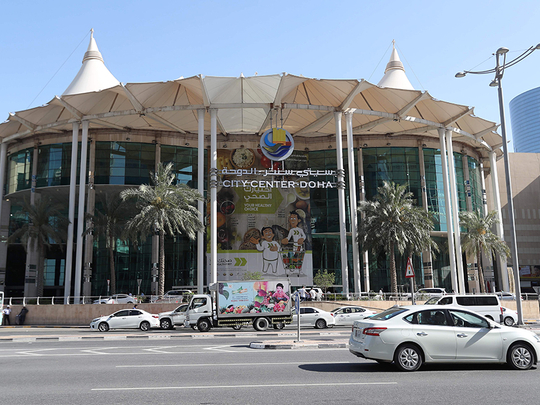
Dubai: Wedged in a tight corner Qatar sought to downplay the diplomatic assault against it.
It insisted the measures would not impact the everyday life of Qataris and residents.
However, no details emerged yet on how Qatar Airways for instance will ensure that all the passengers who had booked tickets will be able to use them.
Qatar’s planes have lost the privilege of using the airspace of Bahrain, Saudi Arabia and the UAE and the three countries will not fly their planes into Qatar.
The situation, occurring days before Eid, the occasion for hundreds of thousands of people to travel and meet up with their families, could deliver complete chaos, deep frustration and a serious blow to Qatar’s status and prestige ahead of the eye-riveting 2022 World Cup.
A picture of a departure screen taken at Doha airport shows that several Qatar Airways flights have been either delayed or cancelled.
The situation will be compounded further with the approach of Eid and the summer holidays.
“I have been trying to get a response from Qatar Airways all morning regarding my young son’s flight in July via Doha, and there is nobody to answer me,” Abeer said.
“I should know early on whether the flight has been cancelled and what action I should take. Unfortunately, I have been ignored and this does not augur well for the next few weeks.”
Qatar, which has been marketing itself as a tourism hub, will naturally be affected by the closure of the Salwa/Abu Samra crossing border with Saudi Arabia.
Meanwhile, Doha News reported that many residents were rushing to supermarkets to stock up on food items.
Photographs of empty chiller shelves have already been circulating on social media sites, as residents reportedly cleared out stores of chicken and other fresh and frozen meat in some shops. Up to 800 lorries use the border crossing every day and figures show that 326,000 visitors used it from January 10 to February 5.
Qatar’s main trade partners are Saudi Arabia and the United Arab Emirates and both Riyadh and Abu Dhabi have decided to limit their transactions with Doha.
The fallout will also likely impact maritime links, a vital way to transport goods into Qatar, which sounds the alarm for more commercial and economic woes for Doha.











